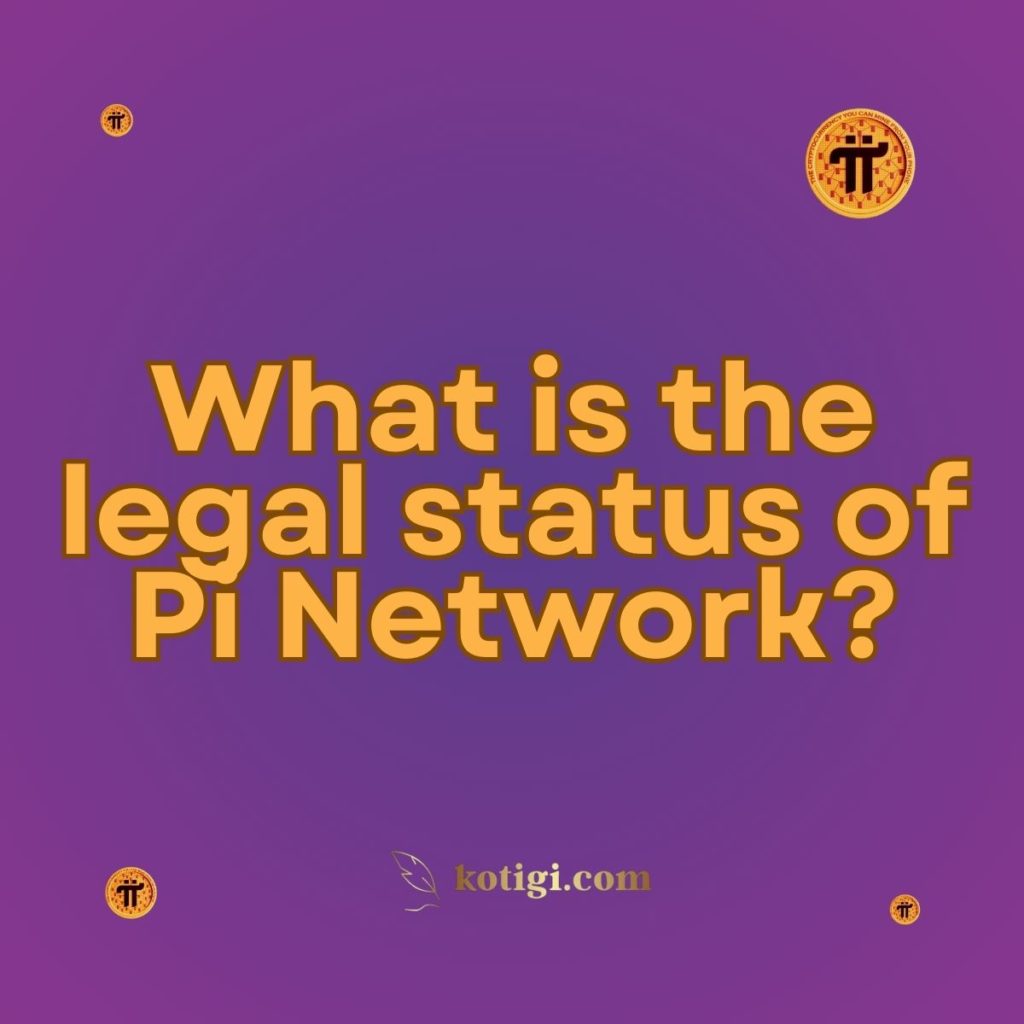
What is the legal status of Pi Network?
The legal status of Pi Network is complex and varies by jurisdiction, influenced by regulations regarding cryptocurrencies, token classification, and data privacy. Understanding these factors is essential for users and developers within the network.
Introduction
Pi Network, a cryptocurrency project aiming to democratize access to mining and transactions, finds itself navigating a multifaceted legal landscape. The evolving nature of cryptocurrency regulations presents both opportunities and challenges for Pi Network and its users. This post delves into the legal status of Pi Network, examining its regulatory environment, token classification, compliance with data protection laws, and user responsibilities.
Regulatory Environment
Global Regulations
The approach to cryptocurrencies differs significantly across the globe. Some countries have embraced digital currencies, implementing supportive regulatory frameworks, while others have adopted restrictive or prohibitive measures. This inconsistency creates uncertainty for cryptocurrency projects like Pi Network.
National Regulations
In various countries, regulatory bodies are beginning to recognize and regulate cryptocurrencies. For instance, the United States has seen increasing scrutiny from the Securities and Exchange Commission (SEC), which affects how projects like Pi Network operate. Understanding the nuances of national regulations is crucial for users.
Regional Differences
Within countries, regions may also have specific regulations that affect the operation of cryptocurrencies. Local laws can introduce additional compliance requirements, making it essential for Pi Network to remain adaptable and informed about varying regulations.
Classification of Pi Tokens
Security vs. Utility Tokens
A pivotal aspect of Pi Network’s legal status is the classification of its tokens. If Pi coins are deemed securities, they may be subject to more stringent regulations, including registration requirements. Conversely, if classified as utility tokens, Pi Network may enjoy greater operational flexibility.
Impact on Token Value
The classification of tokens can influence their market value and user adoption. If users perceive Pi coins as securities, it may deter participation due to regulatory uncertainties. Clear communication about token classification can enhance trust and engagement within the community.
Potential for Legal Challenges
Misclassification can lead to legal challenges for Pi Network, especially if regulators assert that the tokens are securities. Understanding the implications of classification is vital for both the network and its users.
Data Privacy and Protection
Compliance with Data Protection Laws
Pi Network must adhere to data protection regulations, such as the General Data Protection Regulation (GDPR) in Europe. Compliance ensures the network respects user privacy and mitigates legal risks associated with data breaches.
User Consent and Transparency
Transparency in data collection practices is essential. Users should be informed about how their data is used, including obtaining consent for data collection and processing. This builds trust within the Pi Network community.
Rights of Users
Users have rights concerning their personal data, including the right to access, rectify, and delete information. Pi Network should clearly outline these rights to foster a secure environment for users.
User Responsibilities
Understanding Local Regulations
Each user has a responsibility to understand the cryptocurrency regulations in their country. This knowledge helps avoid potential legal pitfalls, including tax obligations related to cryptocurrency transactions.
Engaging Responsibly
Users should engage with the Pi Network in a responsible manner, ensuring they comply with all relevant laws and guidelines. Awareness of local laws can prevent unintentional violations.
Reporting and Transparency
Active participation in the Pi Network also involves reporting any suspicious activities or breaches of protocol. Transparency among users fosters a safer and more compliant community.
Legal Challenges Ahead
Evolving Regulations
As the cryptocurrency landscape evolves, so too do the regulations governing it. Pi Network must remain agile to adapt to changes that may arise in the legal framework, which can affect its operations.
Potential Legal Risks
Legal risks may include challenges related to token classification, compliance with financial regulations, and data protection issues. Staying informed about these risks is essential for the sustainability of the network.
Future Developments
Ongoing developments in legislation and regulatory actions can significantly impact the legal status of Pi Network. Being proactive in addressing potential legal issues will be crucial for the network’s long-term viability.
Conclusion
The legal status of Pi Network is a dynamic aspect that requires careful consideration by users and developers alike. By understanding the regulatory environment, token classification, data protection laws, and user responsibilities, participants can navigate this complex landscape effectively. As regulations continue to evolve, staying informed and compliant will be essential for the network’s growth and sustainability.
Key Takeaways
- The legal status of Pi Network is influenced by global, national, and regional regulations.
- The classification of Pi tokens as securities or utilities can significantly impact the network’s operations and user engagement.
- Compliance with data protection laws is crucial for maintaining user trust and mitigating legal risks.
- Users are responsible for understanding local regulations and engaging responsibly with the network.
- Evolving regulations present both challenges and opportunities for Pi Network’s future development.
